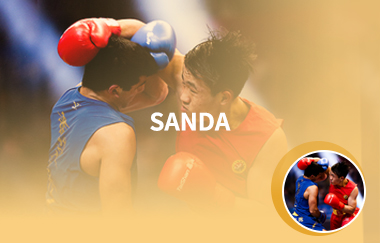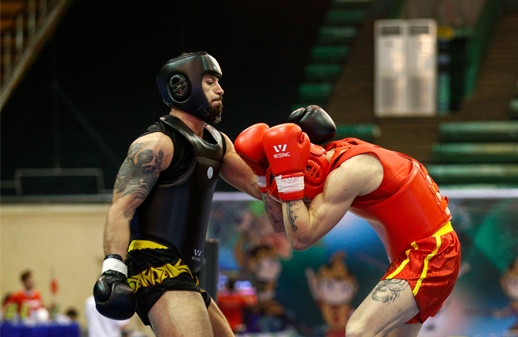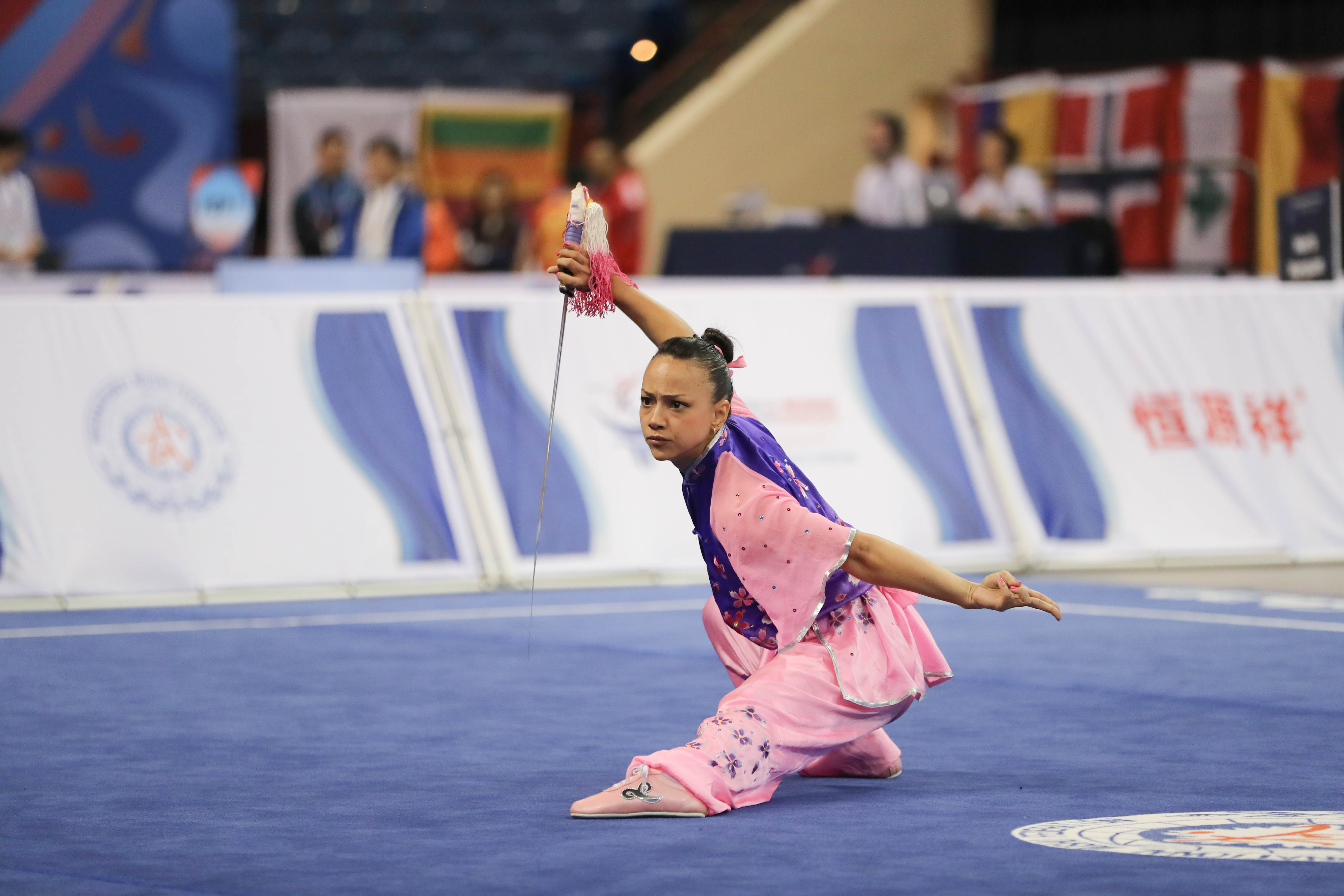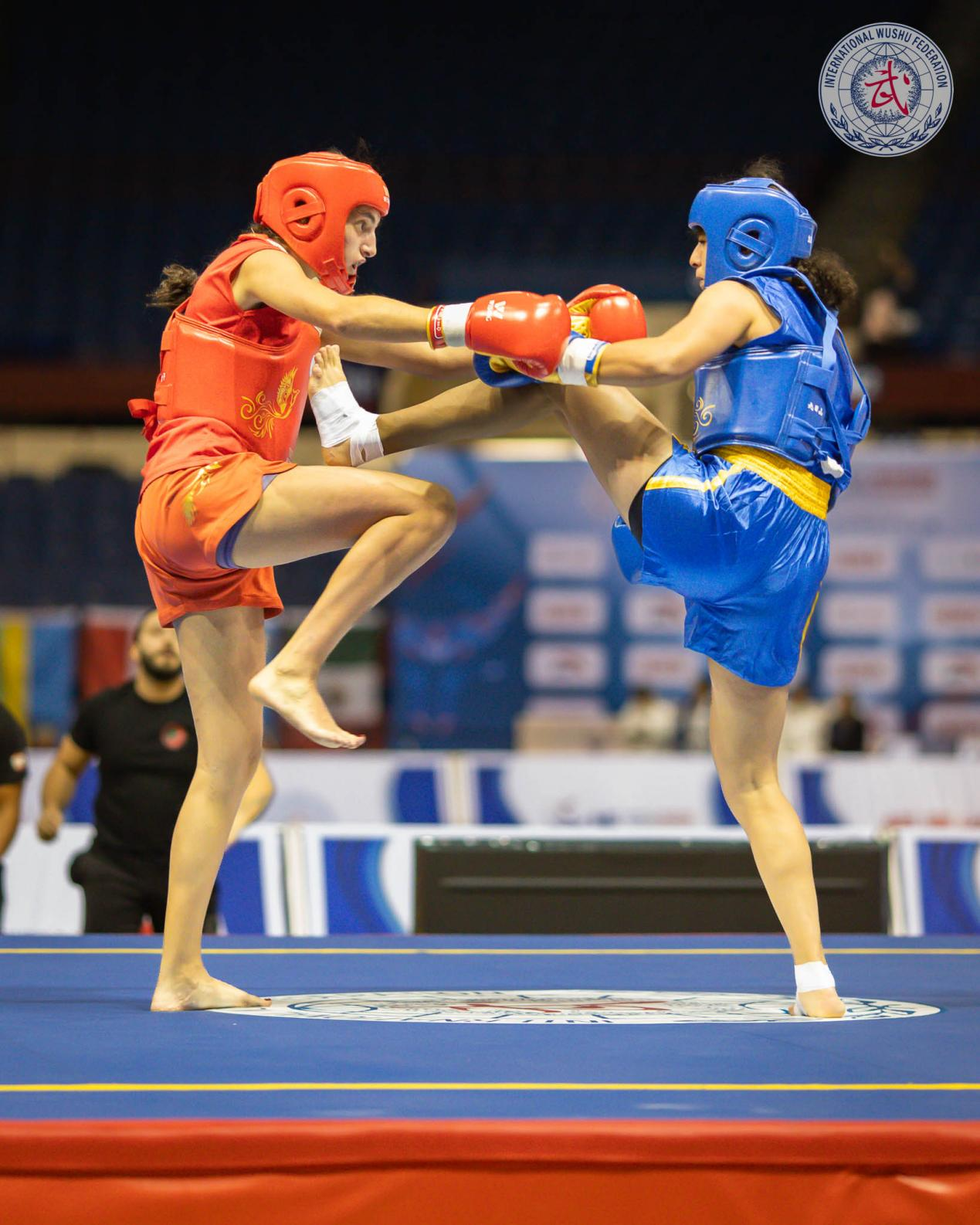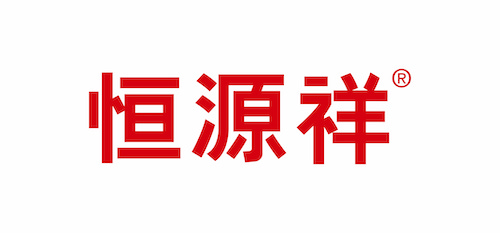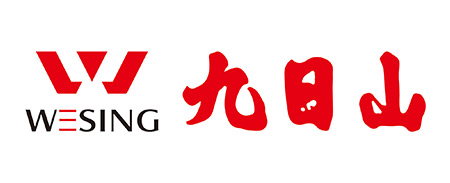Sanda is a modern unarmed combat sport that developed from traditional wushu techniques, and primarily makes use of punching, kicking, throwing, wrestling and defensive techniques.
Sanda
-
Competition bouts take place on an elevated platform called a “leitai,” which is 80cm in height, 8m in width and 8m in length, and comprises of a frame covered in high density foam with a canvas cover. On the ground surrounding the platform is a protective cushion that is 30cm in height and 2 meters in width. Competing athletes wear protective gear that includes a headguard, chest protector, and gloves, as well as a mouthguard and a jockstrap.

-
Competition bouts comprise of 3 rounds in total, each lasting two minutes with a one-minute rest period between rounds. Apart from illegal blows and methods, sanda athletes may employ punching, kicking and throwing techniques from all styles of wushu. Valid striking areas are: the head, the trunk (including the chest, abdomen, waist and back), and the legs. The full-contact bouts are free flowing and exciting, and athletes are awarded points by the sideline judges for successfully-executed techniques based on the scoring criteria. An athlete will be declared the winner if he or she wins 2 out of the 3 rounds of a bout, or if his or her opponent is knocked out.
-
Sanda competition includes 11 weight categories for men and 7 weight categories for women.
-
3
Rounds
-
2
Minutes Per Round
-
1
Minute Rest
Between Rounds
Winning
An athlete will be declared the winner if he or she wins 2 out
of the 3 rounds of a bout, or if his or her opponent is knocked out.







